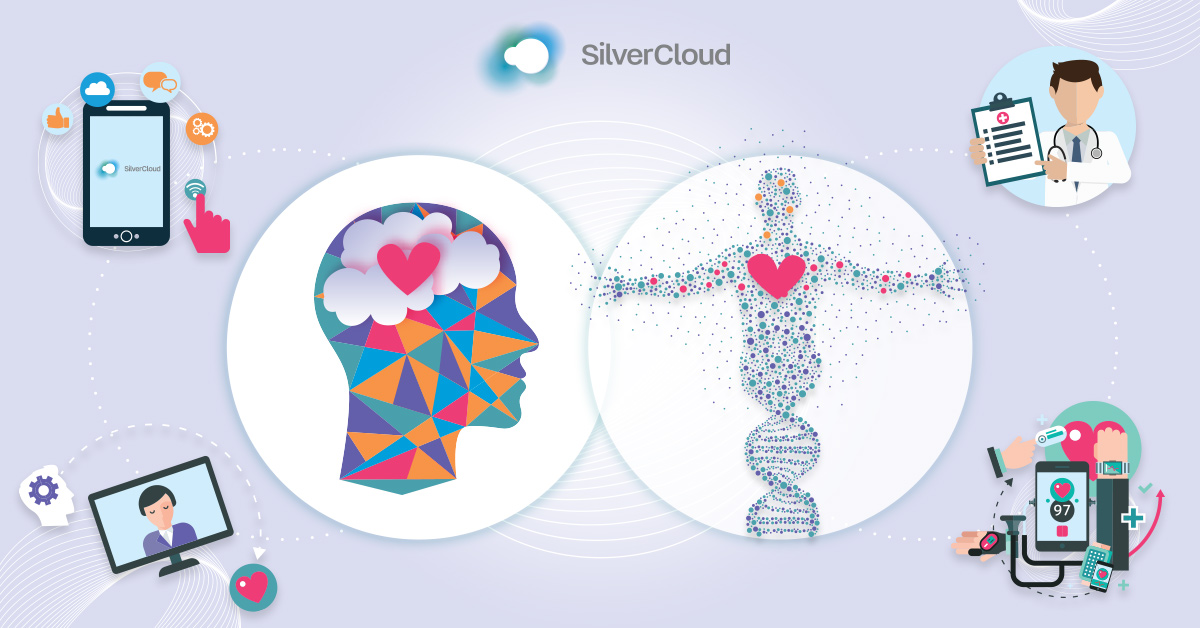
The link between our bodies and emotions is evident in many ways. For instance, when an individual suffers from chronic physical illness or a long-term condition (LTC), such as diabetes, cancer, and cardiovascular diseases, it can have a life-changing impact on an individual’s emotional and psychological well-being.
Equally someone experiencing mental health problems such as anxiety and depression can find it difficult to manage physical symptoms of a co-morbid LTC.
Hence, it is perhaps unsurprising that at least 30% of people with LTCs also have a mental health problem, yet fewer than 15% of people with a life-threatening condition like diabetes have access to psychological support. If these feelings of low mood and anxiety are left unattended, they can further compound the prognosis of the LTC and add existing difficulties to the individual’s life.
There is more and more emerging evidence suggesting that LTC patients with comorbid depression and anxiety can benefit from evidence-based psychological interventions, in particular internet-delivered Cognitive Behaviour Therapy (iCBT). By delivering treatment online, more LTC patients who would have typically been limited by their physical capacity to attend therapy can be reached.
In the UK, as part of their agenda, IAPT (i.e. Improving Access to Psychological Therapies) services are working towards an integrated model to extend their access to people with LTCs for the treatment of comorbid depression and anxiety in this population. Silvercloud put this model to test by carrying out a large-scale, naturalistic study on the effectiveness of their iCBT programs (i.e. Space from Depression and Space from Anxiety) for treating comorbid depression and anxiety in LTC patients. They examined 2 years of real-world data from patients that were enrolled in an IAPT service provision in the UK. They found that iCBT not only reduced depression and anxiety symptoms in patients with and without LTC, but the treatment also improved patients’ daily functioning, crucial to self-management in LTC patients. Older LTC patients were also found to have benefited even more from the treatment, possibly due to a common inference that they might have engaged with iCBT more as they have an increased sense of urgency to self-manage their LTC that is causing them more metabolic instability in the course of their illness.
Effective psychological treatments like iCBT for the comorbid depression and anxiety difficulties LTC patients are experiencing, are crucial for alleviating the heavy burden and demands on mental health services that would other wise be devasting if they are left alone. Via integrated care, LTC patients can receive help for managing their physical conditions and their psychological comorbidities at the same time. On top of that, studies have suggested integrated care can bring on many other positive effects such as increased patient satisfaction, perceived quality of care, and patient satisfaction. More attention from healthcare services needs to be placed on the implementation of integrated care on a wider scale, even globalisation.
Silvercloud is a multi-aware winning mental health global tech leader in digital interventions for mental health care. We offer a wide range of evidence-based programmes designated to address the low mood and anxious feelings that accompany a diagnosis of a long-term condition. Through rigorous research, design, and development of our online platform the aim is to contribute to the psychological well-being of those who are suffering from a complex comorbidity encompassing both mental and physical health problems. Ultimately, we strive to help those in need to effectively manage the psychological effects of the LTC.
About the Author
Sharon Lee is a clinical Assistant Psychologist in Silvercloud providing support through low-intensity internet-delivered Cognitive Behaviour Therapy to service users with a range of mental health problems, including mild to moderate symptoms of depression and anxiety. Her research interests lie within the collaboration and fusion of digital innovation and treatments for mental health and clinical applications.







